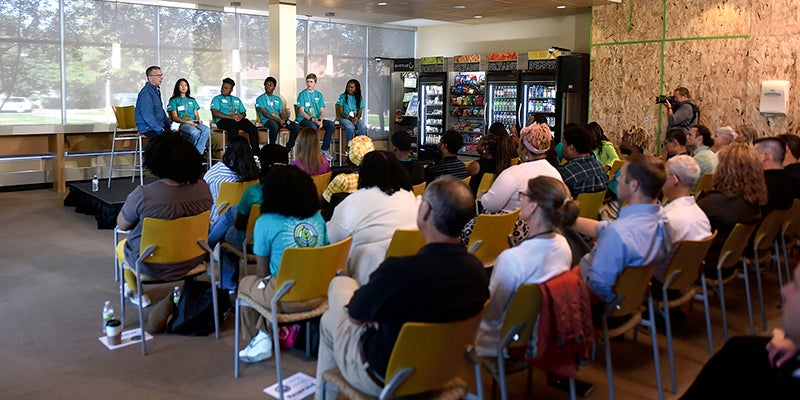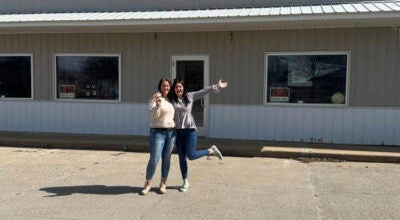Report: Hispanics a growing part of business culture in places like Austin
Published 8:57 am Thursday, December 20, 2012

Minnesota 2020 Fellow Lee Egerstrom, left, and El Mariachi general manager Luis Flores discuss the impact immigrants and new residents have on Minnesota's economy. Egerstrom is one of the authors of a recent report which found more than 40 percent of new businesses in Minnesota were started by incoming residents. -- Trey Mewes/trey.mewes@austindailyherald.com
Newcomers and immigrants to Minnesota are an untapped economic engine, and Austin is no different.
That’s according to a new report by Minnesota 2020, a think-tank which was at El Mariachi restaurant in Austin Wednesday afternoon for a press conference.
Minnesota immigrants from other states and countries are responsible for as much as 40 percent of new business growth in the Twin Cities Metropolitan area, according to Minnesota 2020 Fellow Lee Egerstrom.
“The growth in business development is coming from the new Minnesotans,” Egerstrom said Wednesday. “The refugees, the immigrants, the newcomers to Minnesota.”
Minnesota’s minority population rapidly increased between 2000 and 2010 according to the U.S. Census Bureau, with Minnesota’s Hispanic population the fastest-growing minority community, increasing from about 143,000 to more than 250,000. Mower County’s Latino population more than doubled in size to more than 4,100 residents in 2010, and Austin’s Hispanic population grew from about 1,400 people in 2000 to more than 3,800 in 2010.
Many Austin immigrants have opened businesses over the past several years, filling open spaces in current buildings and in some cases renovating former Austin hotspots, notably the El Parral Ballroom in 2009.
Egerstrom said immigrants are mainly opening food-related or food industry businesses. Since new businesses require supplies, Egerstrom said, new entrepreneurs are boosting local and regional economies throughout the state by purchasing materials and creating goods sought by refugees and immigrants, such as specialized breads for Muslim refugees from East Africa.
“We’re also seeing data now … that there is something larger than just counting jobs, counting new businesses,” Egerstrom said. “There is a growth from the convergence of new Minnesotans in commercial activity and cross cultural activity with old Minnesotans.”
El Mariachi General Manager Luis Flores agrees. Flores said he sees a diverse group of people dine at El Mariachi daily and said new Austin residents come here to find jobs and provide services to the city’s growing communities.
“There’s lots of opportunities here,” Flores said.
The report calls on state officials to pay more attention to immigrant growth and further study the effects minority entrepreneurs have on the state’s economy. According to a report from Concordia University researchers cited by Egerstrom, the state’s minority population could have more than $12 billion in purchasing power.
Egerstrom also said Minnesota legislators standardize language services across government agencies and educate potential business owners on state regulations.





